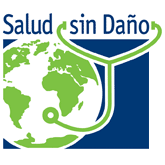On June 13-15, Gavi's Global Vaccine Impact Conference convened leaders from over 20 countries in Madrid under the theme “Raising Generation Immunity”, to assess progress in routine immunization and life-saving vaccinations. Hosted by the Government of Spain, this event gathered world leaders and immunization experts to address challenges and explore opportunities. Health Care Without Harm’s International Climate and Health Campaigner, Shweta Narayan was one of the keynote speakers.
Narayan underscored the urgent connection between climate and health, highlighting the climate crisis as a grave public health concern impacting vital elements such as air quality, water resources, food security, and overall well-being. She advocated for transformative actions, urging the health care sector to prioritize climate solutions and place human and environmental health at the forefront.
"The health sector is beginning to understand the seriousness of its climate footprint, and so many of you in the room today are a part of this critically important awakening. In the last couple of years, we have seen enormous momentum in the sector toward transformative health care that starts with climate solutions that put both human and environmental health at the forefront. This momentum is guided by a zero emissions, climate resilience, and health equity road map," she said, acknowledging the remarkable progress made within the health care sector in addressing its climate impact.
She also highlighted that extreme climate events not only threaten people's health but also health care's own infrastructure and capacity to respond– including the delivery of vaccines. She emphasized the need to build low-carbon, climate-resilient health systems.
Commending Gavi's leadership in constructing low-carbon cold chains and ensuring equitable vaccine access while minimizing environmental impact, she emphasized their critical role in transforming healthcare in the 21st century.
"When doctors, nurses, hospitals, health systems, and health organizations like GAVI take public stances on environmental pollution and climate change, it can reframe these issues as public health questions and help move public opinion and policy," she added.
Narayan also emphasized the health sector's and health professionals' pivotal role in advocating for a rapid, just, and healthy transition away from fossil fuels toward accessible, clean, and renewable energy. She highlighted the need for community resilience and modeling the path to a post-fossil fuel economy, underscoring that the health sector's efforts, including global vaccination campaigns, depend on a sustainable future.
